News
We are delighted that our latest research paper on polymer chemistry was published in Science! In this study demonstrate a recyclable epoxy-thermoset based on renewable resources! Huge congratulation to the entire team and all researchers involved. The news was alreay picked up by the Univerity as well – Enjoy the read!
We are proud to announce that our recent publication in Angewandte Chemie on lignin derived biologically active molecules made it to the homepage of the University of Graz! Congratulations to the authors who conducted this exciting research. Enjoy the read!
Read more: ERC Consolidator Grant StimulART
We are happy to announce that our sustainable surfactant prototypes from the aws Gründungsfonds funded prototype project “Abfall zu Abwasch” and the EIC Transition funded project PureSurf has won the Austrian Phoenix Founders Award in the category prototype.
Read more: Phoenix price
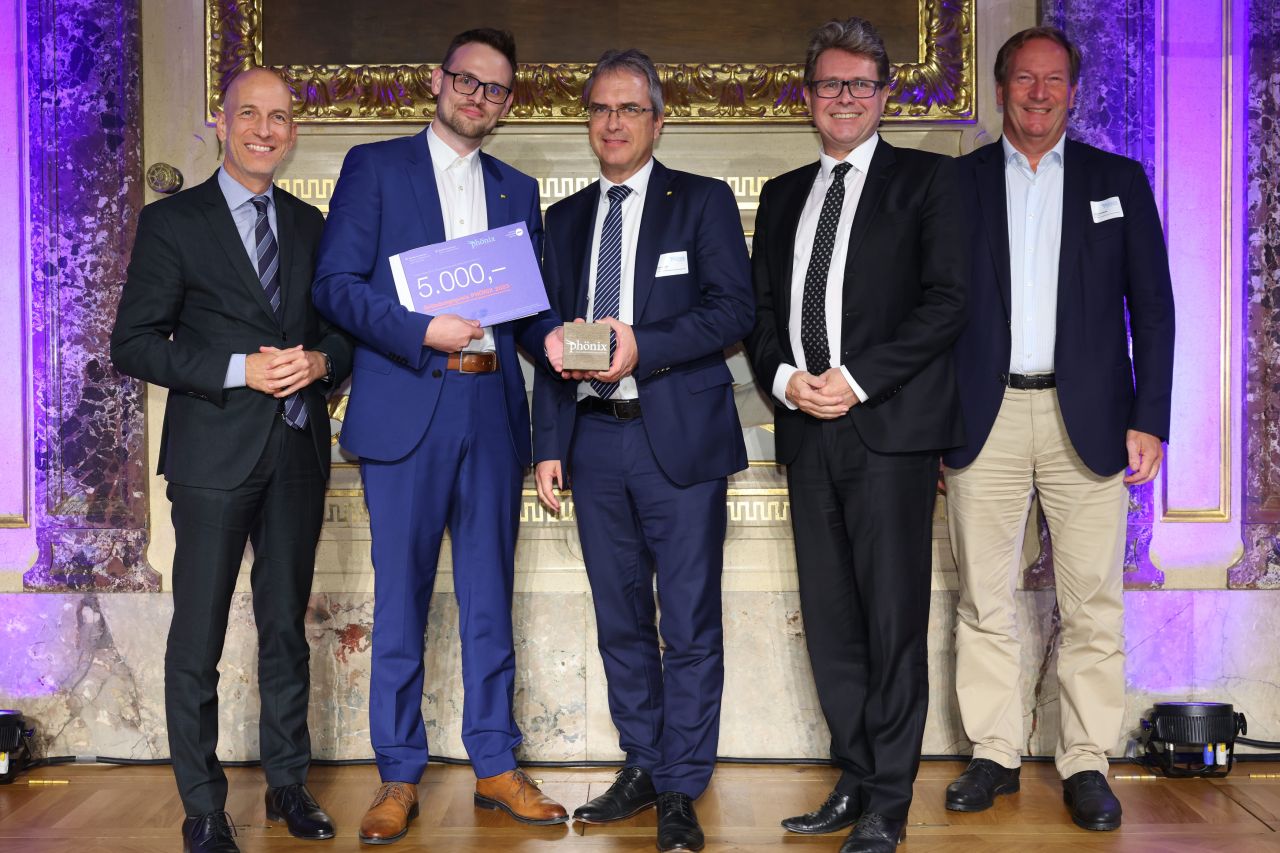 Foto: Austria Wirtschaftsservice/APA-Fotoservice/Schedl
Foto: Austria Wirtschaftsservice/APA-Fotoservice/Schedl
The PureSurf initiative produces “green” surfactants from waste products and aims to found a spin-off company at the University of Graz. Check the latest news about PureSurf on the project website .
We are proud to announce that we were awarded the Styrian Innovation award for our research in the field of sustainable surfactants that can be produced pnly using locally available waste- and side streams.
Read more: „Grüner“ Gewinn
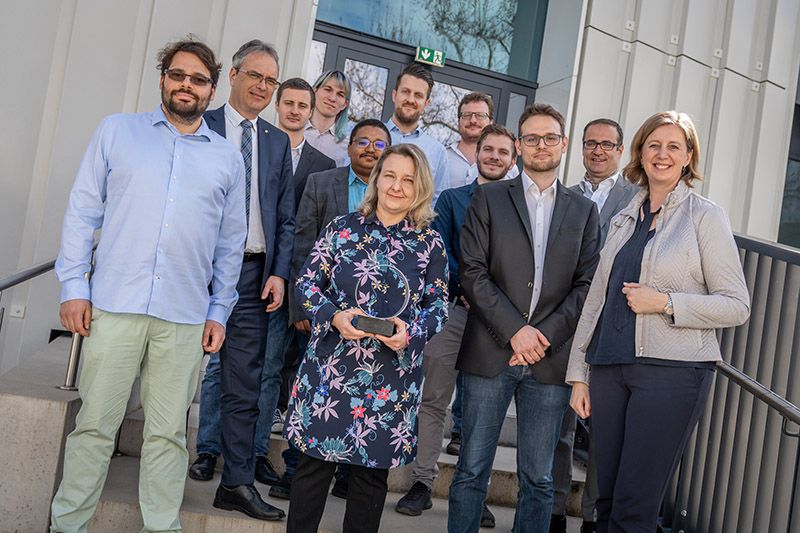 Foto: Land Steiermark/Streibl
Foto: Land Steiermark/Streibl
The PureSurf initiative produces “green” surfactants from waste products and aims to found a spin-off company at the University of Graz. Check the latest news about PureSurf on the project website .
We are beyond happy to announce that we were selected by the European Innovation Council (EIC) as one of the receivers of the 2.5 million euros grant awarded to take breakthrough projects into real life.
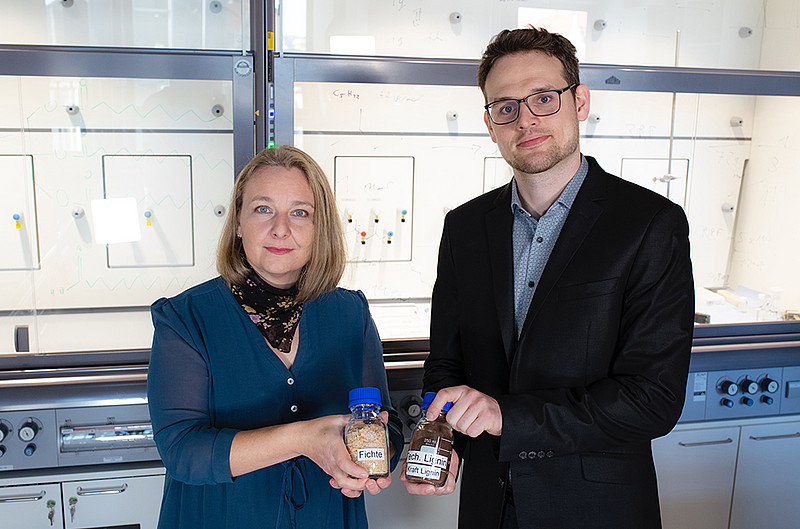 Foto: Uni Graz/Tzivanopoulos
Foto: Uni Graz/Tzivanopoulos
The PureSurf initiative produces “green” surfactants from waste products and aims to found a spin-off company at the University of Graz. Check the latest news about PureSurf on the EU Trending Topics and on the University of Graz website.
We are proud to announce that our recent publication on bio-based polymers from paper industry waste made it to the homepage of the University of Graz! Congratulations to the authors who conducted this exciting research. Enjoy the read!
Congratulations to Dr. Anastasiia Afanasenko (now post-doc at McGill University in Canada) for receiving the Merit Scholarship for foreign students (PBEEE 2021-2022)!
A news piece was published on the website of the Institute of Chemistry about our research group!
Read more here: Gut Holz!
We are happy to announce that Katalin has joined ChemSusChem as a new Chair of the Editorial Board!
Read more in the editorial: A Fresh Look at Sustainable Chemistry, by Dr. David J. Smith
You can access the article, written by Prof. Katalin Barta Weissert, here: Project Repository Journal, Volume 5, April 2020, Pages 74-75
or
Cleave and couple: Sustainable Routes to Bio-based Amines – CatASus Project Dissemination
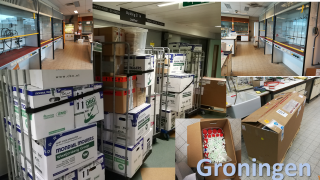
The past few months were incredibly busy, beside everything else, we moved! A fantastic and ongoing team effort to build up our new labs at the Institute of Chemistry, University of Graz. Stay tuned for more exciting research from this new location!
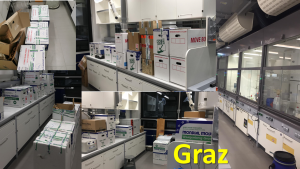
Baltrusaitis, Barta, and Wang: 2020 Winners of the ACS Sustainable Chemistry & Engineering Lectureship Awards
David T. Allen
ACS Sustainable Chem. Eng. 2019, 7, 22, 18197-18197
Turning lignin into bioactive molecules in three green steps
The awarded project ‘PURE’ aims to explore cleaner and more sustainable catalytic pathways for the conversion of renewable resources to valuable building blocks that are of interest for industrial partners.
Congratulations to all past and present group members who have made great contributions!
Read more here: https://onlinelibrary.wiley.com/doi/10.1002/cctc.201900930
https://www.rug.nl/news/2019/03/first-n3c-award-for-katalin-barta-
Read more…